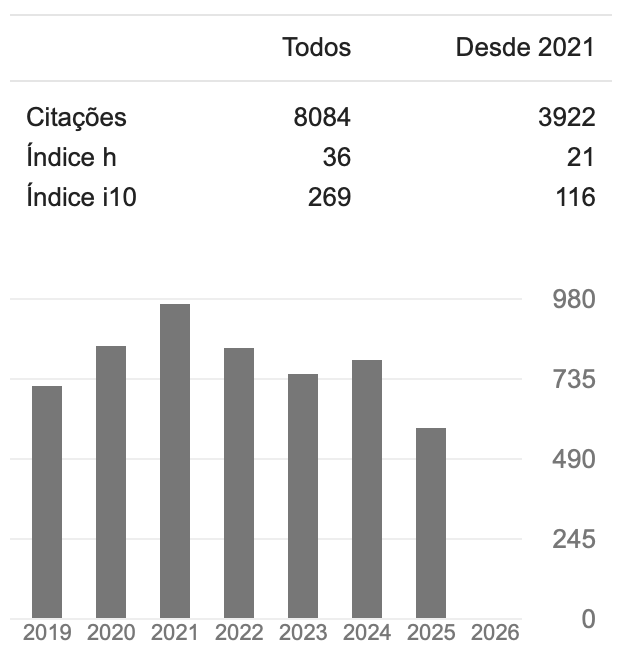Loss of Financial Well-Being in the Covid-19 Pandemic: first evidences from a Websurvey
DOI:
https://doi.org/10.17765/2176-9206.2021v14n4e9020Keywords:
Covid-19, Financial management, Income, Well-beingAbstract
To assess the loss of Financial Well-being due to the pandemic. A websurvey was conducted with Brazilian citizens and the data were analyzed using descriptive statistics and tests of mean difference. The results indicate the loss of Financial Well-Being occurs mainly for individuals who have had a decrease or a total loss of income since the pandemic. Individuals with the greatest falls in the level of financial Well-being are those who have dependents, have no job stability, with lower incomes and that did not have financial reserves before the pandemic. The loss of Financial Well-being is a public health problem once it relates to other aspects of life such as levels of general Well-Being, happiness, satisfaction, social relationship and quality of life, and may be associated with increased anxiety and depression.Downloads
References
1. Parmet WE, Sinha MS. Covid-19 the law and limits of quarantine. New England Journal of Medicine 2020; 382(15), e28.
2. Bittencourt RN. Pandemia, isolamento social e colapso global. Rev Esp Acad 2020 Mar/Abri; 19(221):168-78.
3. Betsch C. How behavioural science data helps mitigate the COVID-19 crisis. Nat Hum Behav 2020 Mar; 4(438).
4. Van Bavel JJ et al. Using social and behavioural science to support COVID-19 pandemic response. Nat Hum Behav 2020 Apr; 4(439):460-71.
5. Webster RK, Brooks SK, Smith LE, Woodland L, Wessely S, Rubin GJ. How to improve adherence with quarantine: Rapid review of the evidence. Pub Health 2020 Mar; 182:163-9.
6. Zhang Y, Ma ZF. Impact of the COVID-19 Pandemic on Mental Health and Quality of Life among Local Residents in Liaoning Province, China: A Cross-Sectional Study. Int. J. Environ. Res. Public Health. 2020; 17:2381-93.
7. Nguyen HC, Nguyen MH, Do BN, Tran CQ, Nguyen TTP, Pham KM, et al. People with Suspected COVID-19 Symptoms Were More Likely Depressed and Had Lower Health-Related Quality of Life: The Potential Benefit of Health Literacy. J. Clin. Med. 2020; 9:965-83.
8. Organização para a Cooperação e Desenvolvimento Econômico (OCDE) [homepage na internet]. Novas perspectivas da OCDE sobre a economia global [acesso em 27 mar 2020]. Disponível em: http://www.oecd.org/coronavirus/pt#economic-outlook
9. Wolfers J. Is Business Cycle Volatility Costly? Evidence from Surveys of Subjective Well‐Being. International Finance, 2003; 6(1): 1–26.
10. Grinstein-Weiss M, Bufe S. Financial Shocks and Financial Well-Being: Which Factors Help Build Financial Resiliency in Lower-Income Households?. St. Louis, MO; Washington University in St. Louis: Social Policy Institute; 2019. https://files.consumerfinance.gov/f/documents/cfpb_financial-well-being_mgw-bufe_brief.pdf
11. Shoss MK. Job insecurity: An integrative review and agenda for future research. Journal of Management, 2017; 43 (6):1911–39
12. Mahdzan NS, Zainudin R, Sukor MEA, Zainir F, Ahmad WMW. Determinants of subjective financial well-being across three different household income groups in Malaysia. Social Indicators Research. 2019; 146(3):699-726.
13. Arber S, Fenn K, Meadows R. Subjective financial well-being, income and health inequalities in mid and later life in Britain. Soc Sci & Medic 2014 Jan; 100: 12-20.
14. Consumer Financial Protection Bureau (CFPB) [homepage na internet]. Financial Well-Being: the Goal of Financial Education, Washington, DC; 2015a. [acesso em 20 apr 2020]. Disponível em: http://files.consumerfinance.gov/f/201501_cfpb_report_financial-well-being.pdf
15. Gutter M, Copur Z. Financial behaviors and financial well-being of college students: evidence from a national survey. J of Fam and Econo 2011 Out, 32(4):699-714.
16. Downing J. The health effects of the foreclosure crisis and unaffordable housing: A systematic review and explanation of evidence. Soc Sci Med 2016 Aug; 162: 88-96.
17. Consumer Financial Protection Bureau (CFPB) [homepage na internet]. Measuring financial well-being: a guide to using the CFPB financial well-being scale. Washington, DC; 2015b. [acesso em 21 apr 2020]. Disponível em: https://files.consumerfinance.gov/f/201512_cfpb_financial-well-being-user-guide-scale.pdf
18. Pestana MH, Gageiro JN. Análise de dados para ciências sociais: a complementaridade do SPSS. 6. ed. Lisboa: Silabo; 2014. 1240 p.
19. Hair JR, Joseph F, Black WC, Babin BJ, Anderson RE, Tatham RL. Análise multivariada de dados. 6. ed. Porto Alegre: Bookman; 2009. 682 p.
20. Field A. Discovering Statistics Using SPSS. 5rd Edition, Sage Publications, London; 2017. 1102p.
21. Delafrooz N, Paim LH. Determinants of financial wellness among Malaysia workers. African Journal of Business Management, 2011; 5 (24):10092-100.
22. Kraut R, Olson J, Banaji M, Bruckman A, Cohen J, Couper M. Psychological research online: report of Board of Scientific Affairs' Advisory Group on the Conduct of Research on the Internet. American psychologist, 2004; 59(2):105-17.
Additional Files
Published
How to Cite
Issue
Section
License
A submissão de originais para a revista Saúde e Pesquisa implica na transferência da Carta Concessão de Direitos Autorais, pelos autores, dos direitos de publicação digital para a revista após serem informados do aceite de publicação.A Secretaria Editorial irá fornecer da um modelo de Carta de Concessão de Direitos Autorais, indicando o cumprimento integral de princípios éticos e legislação específica. Os direitos autorais dos artigos publicados nesta revista são de direito do autor, com direitos da revista sobre a primeira publicação. Os autores somente poderão utilizar os mesmos resultados em outras publicações, indicando claramente a revista Saúde e Pesquisa como o meio da publicação original. Em virtude de tratar-se de um periódico de acesso aberto, é permitido o uso gratuito dos artigos, principalmente em aplicações educacionais e científicas, desde que citada a fonte. A Saúde e Pesquisa adota a licença Creative Commons Attribution 4.0 International.
A revista se reserva o direito de efetuar, nos originais, alterações de ordem normativa, ortográfica e gramatical, com vistas a manter o padrão culto da língua e a credibilidade do veículo. Respeitará, no entanto, o estilo de escrever dos autores. Alterações, correções ou sugestões de ordem conceitual serão encaminhadas aos autores, quando necessário. Nesses casos, os artigos, depois de adequados, deverão ser submetidos a nova apreciação. As opiniões emitidas pelos autores dos artigos são de sua exclusiva responsabilidade.

















